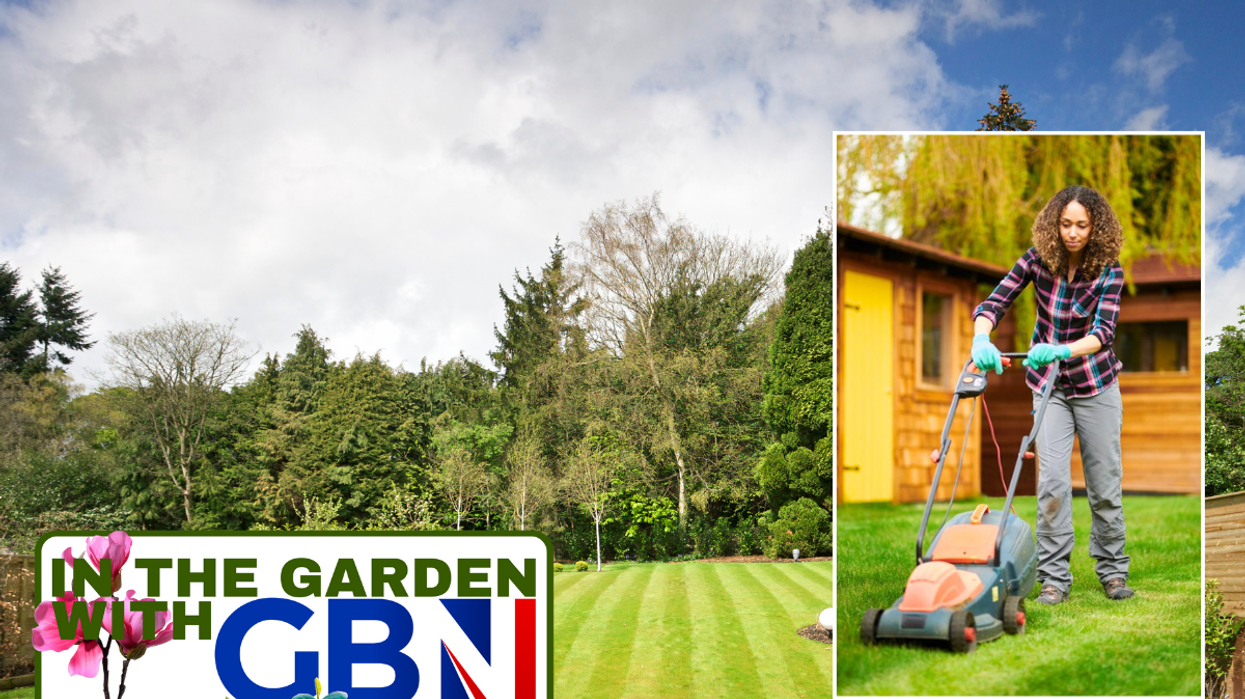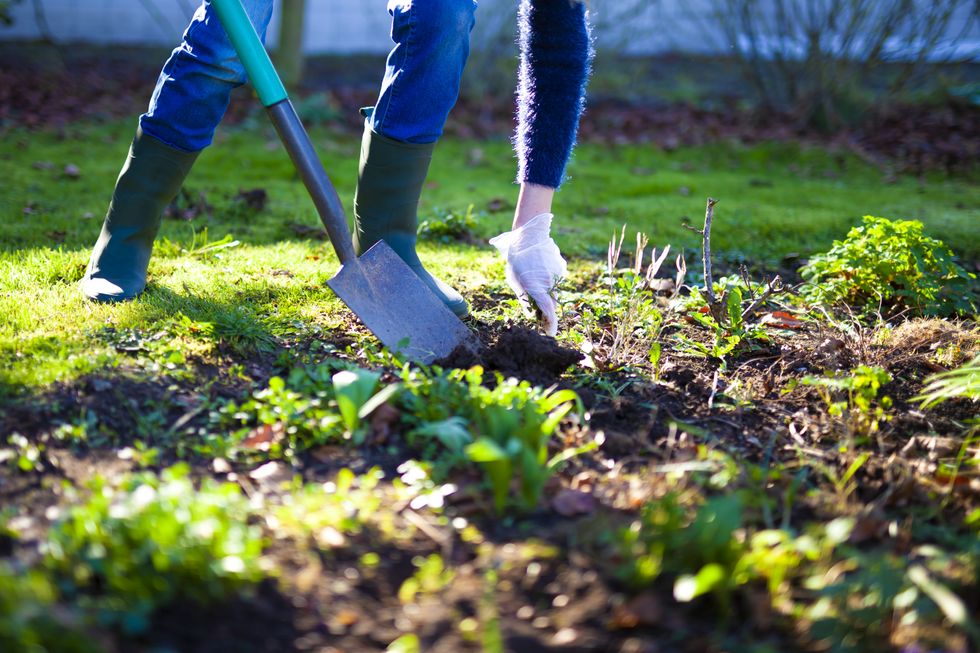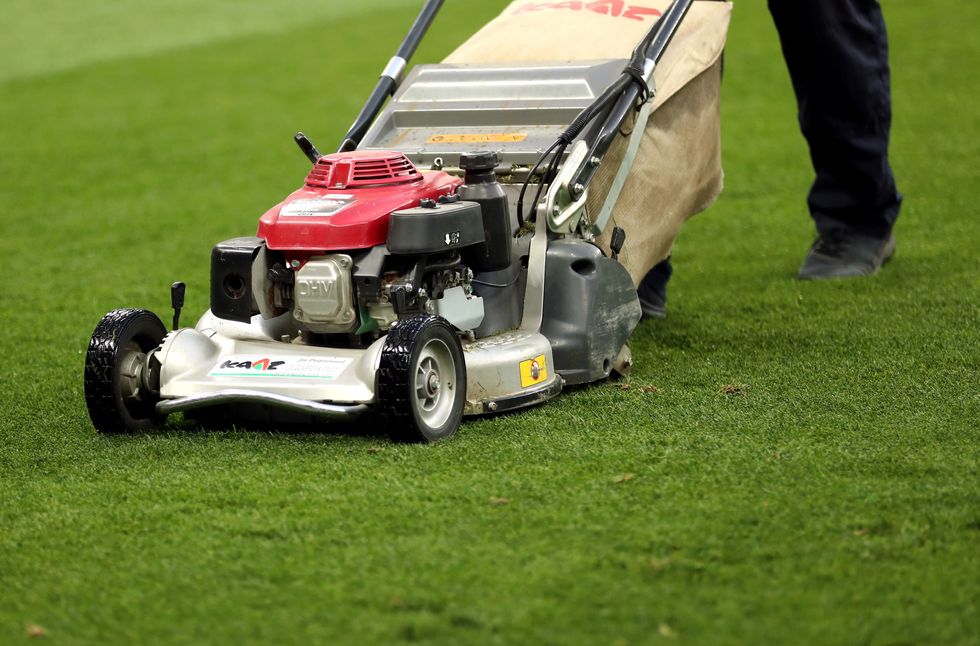In the garden with GB News: Lawn care - everything you need to know for healthy grass - mowing, planting and promoting strong growth

GB News shares everything you need to know about mowing the lawn
|GETTY

GB News is sharing everything you need to know about how to grow and care for the plants in your garden and home. This week, we look at your lawn and the best way to keep it healthy
Don't Miss
Most Read
Latest
A well-maintained lawn can elevate your garden so it is important to give it plenty of attention as the weather starts to warm up.
GB News shares the best tips to help you grow a luscious lawn as well as advice on cutting the grass.
Everything to know about caring for your lawn
Mowing
Gardeners do not need to mow their lawns year-round and can pull back in the winter months when the grass stops growing. Spring is usually the time to pick up this task again, however, so Britons should be thinking about mowing their lawn for the first time this year if they've not already.
Before starting to mow the lawn, homeowners should check the grass and soil are ready for this and the mower blades are at the appropriate height.
This means a height that will not cut the grass too short - aim to avoid cutting more than a third of the length of the grass at any one time. If the grass is too short, there is less room for photosynthesis and healthy development of the lawn.
Emptying the lawnmower regularly will make cutting the grass easier as it will run more smoothly. It is also easier to cut grass when it is dry, although this may not always be possible.

GB News shares tips for planting
|GETTY
There is even a best time of day to mow the lawn - generally in the morning before 10am. This gives the grass time to settle and heal before the evening. Britons should be careful not to over-cut their grass.
Co-founder of The Solar Centre Brian Davenport told GB News: "Cutting your lawn too short may seem like a good solution to prolong the need to cut it again, but this will damage the grass.
"By cutting the grass too close to the root, it will diminish its ability to absorb much-needed nutrients to grow. The lack of rainfall during the summer will also slow down the rate of regrowth, or completely inhibit it. Overcutting limits a lawn’s ability to absorb sunshine which is essential for photosynthesis and ultimately weakens the root system.
"Per session of lawn mowing, you should not cut off more than a third of the grass blade, and it will grow best when it stands to at least three inches."
Planting
Those looking for a lush lawn this year should plant now as spring conditions are optimal for healthy growth.
Brian said: "The best time to plant grass seed is right now, as mid-spring conditions allow the soil to be warm enough to encourage growth and can provide plenty of moisture in consistent temperatures.
"Alternatively, early autumn conditions are ideal for sowing grass seeds as this is also when temperatures are most consistent. The seeds should begin to grow within two weeks of planting and germination, and they should be fully grown after eight weeks."
You should use a variety of grass seeds, as the specifications and strengths of each seed can balance each other as they grow to create an even lawn. You can plant grass seeds on your lawn to create a fuller garden.
Gardeners should first prepare their lawns by getting rid of any weeds and debris in the garden and ensuring to sow grass seeds evenly.
Gardening expert from Garden Street Holly Jones told GB News: "Choose the appropriate grass species for your region and soil type and prepare the soil by removing weeds and debris, then loosen the top layer and add compost if necessary. Sow grass seeds evenly and lightly rake them into the soil."
Gardeners should water newly planted grass often so the soil remains moist until germination happens. Using more than one type of grass seed will make the lawn more durable and more likely to survive year-round, Brian continued.
He said: "Turf that is grown from several types of grass seeds is far more likely to survive intense weather conditions, such as the summer heat, than grass grown from one seed type. Before re-seeding a lawn, you should always do your research or consult a professional to find the seeds most suited to your needs and climate."
Maintaining a healthy lawn
Our lawns get the most attention during the spring and summer months but it is important to monitor them throughout the year to keep them healthy. In spring and autumn, homeowners can keep grass looking its best with a balanced fertiliser.
You should also aerate the soil and get rid of any weeds that appear. Holly added: "Regularly aerate the soil to improve root development and water penetration. Control weeds by hand-pulling or using appropriate herbicides, taking care to follow instructions carefully."
Gardeners should watch how often they water their lawns as doing this too often can cause it to flood, rotting the roots and killing the grass. However, failing to water enough can cause the grass to turn brown and the ground to crack.
LATEST DEVELOPMENTS

Now is the time to start mowing the lawn
|PA
Brian explained: "Homeowners should stick to an infrequent water schedule to avoid damaging their lawn. Grass only needs an inch of water each week to grow at a normal rate, and this will normally be provided by rainfall.
"During summer months, you can water your grass two to three times per week to account for a lack of rainfall but be careful not to soak it as the ground will be dryer and may not absorb excess water.
"Homeowners should also be wary of any restrictions on watering grass, particularly in the summer when droughts can lead to hosepipe bans."
Lawn care timeline
Spring
Aerate: It is the best time to aerate the soil and overseed thin or patchy areas
Prevent against weeds: Apply a pre-emergent herbicide to prevent weed growth
Mow: Spring is the time to start mowing for the year, upping the frequency as the grass starts to grow. Continue this into the summer
Summer
Water: Keep the lawn hydrated by watering deeply to encourage root growth. Be careful not to water too regularly
Weed: Spot treat weeds when they appear to reduce the risk of them spreading
Autumn
Mow: Autumn is the time to cut back on mowing the lawn but gardeners may still need to mow for the final time this year
Fertilise: Protect the health of the lawn and promote growth by using a high-phosphorus fertiliser
Clear debris: Get rid of any remaining weeds and clear fallen leaves and debris from the garden
Winter
Maintain: Protect the lawn by clearing snow and avoiding walking on frozen grass
Monitor: The lawn requires less attention during these months but it is worth watching for signs of pests or disease
If looking for more gardening tips, GB News shares everything you need to know about lilies. You can also check out our guide on roses for the best tips on caring for these in the garden and at home.










